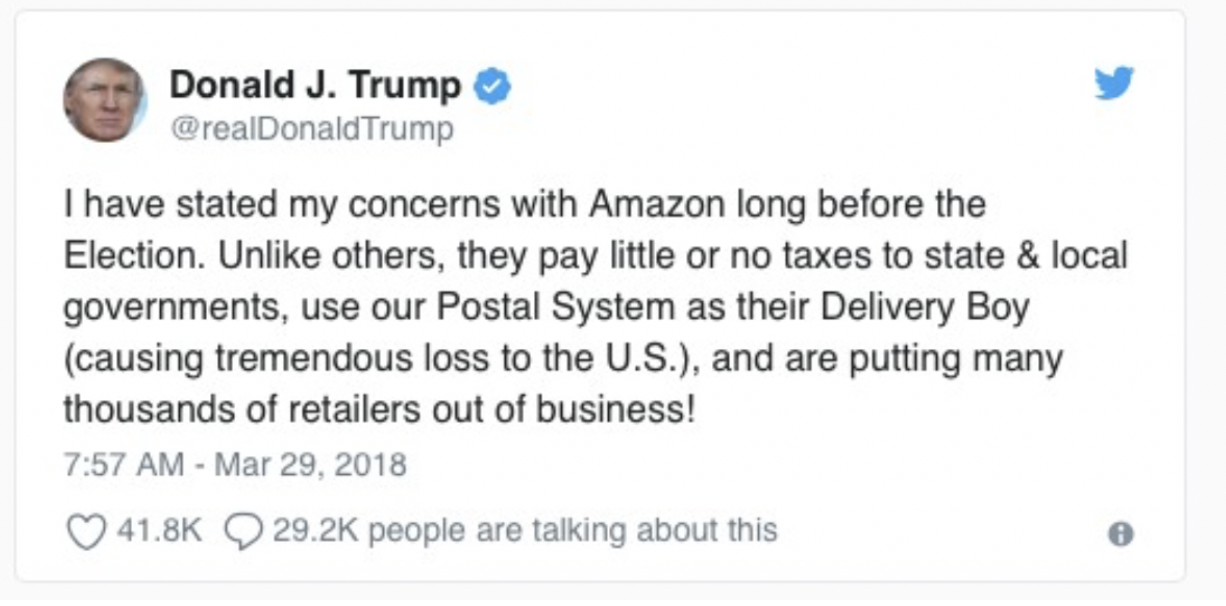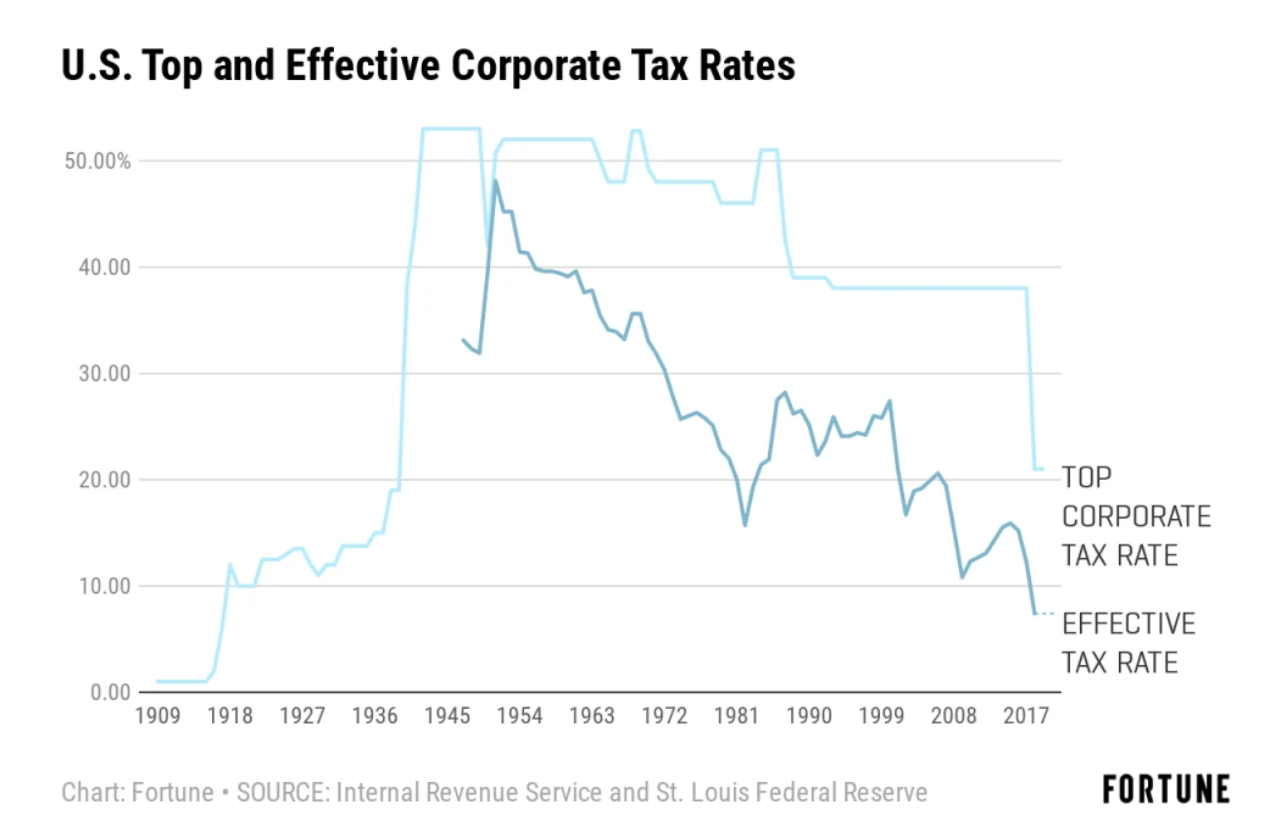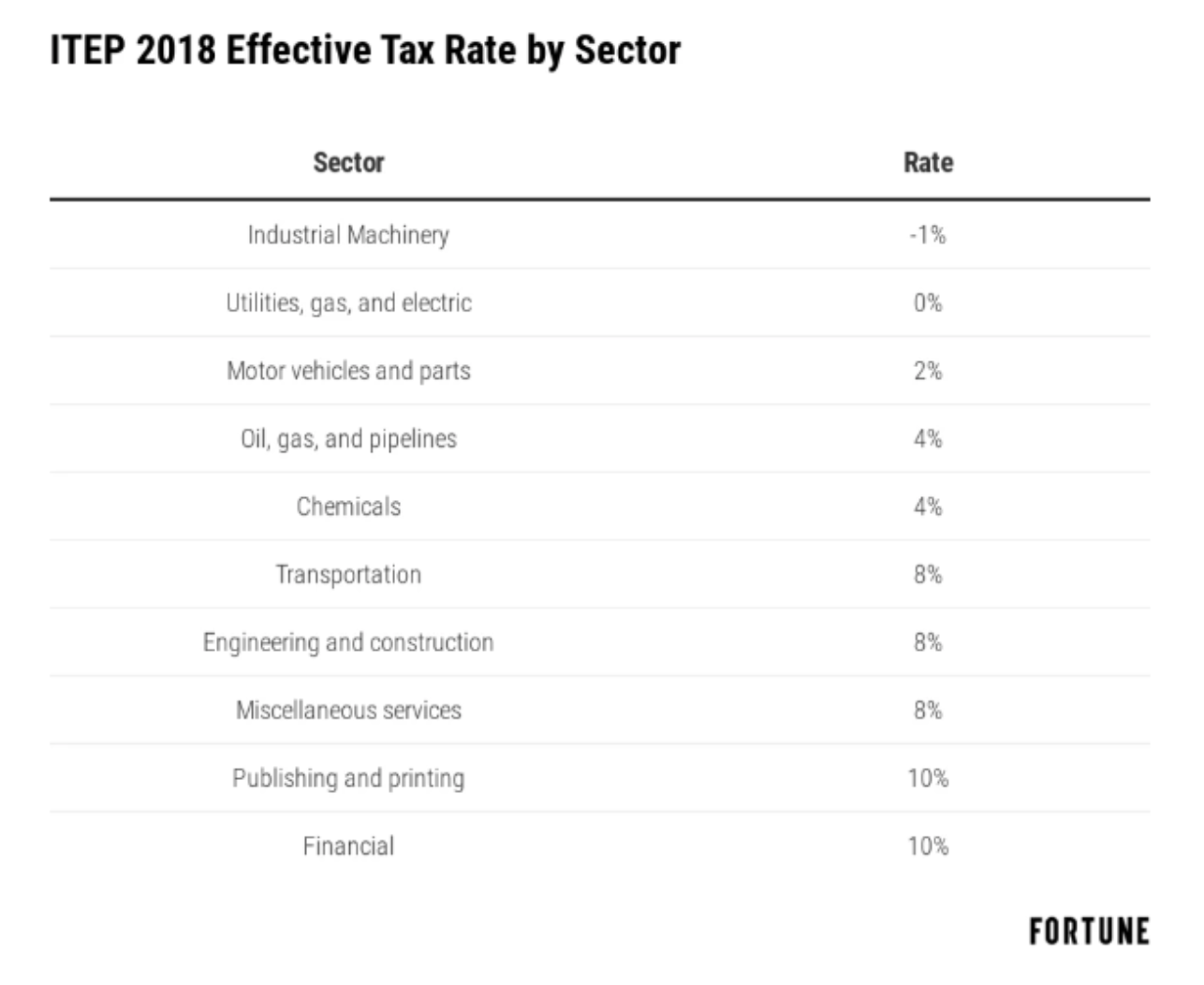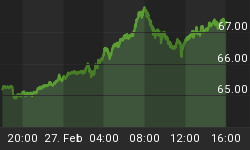President Trump’s tax bonanza is the gift that keeps on giving, and corporate America could not be happier about the situation.
When the Trump administration unveiled the Tax Cuts and Jobs Act of 2017 (TCJA)--the most comprehensive tax legislation since the Tax Reform Act of 1986--a cross-section of economic prognosticators was vehemently opposed to it, warning that the populist move would backfire and end up becoming a huge revenue loser for the government.
Well, it turns out they were quite prescient on that one.
According to a new report by the Institute on Taxation & Economic Policy (ITEP), a majority of Fortune 500 companies are now paying corporate taxes well below TCJA’s stipulated rate of 21%, with a sizable number paying nothing at all.
The low rates are a key reason why federal deficit spending has soared from $799 billion in fiscal year 2017 to $984 billion in FY 2019, a steep 23.2% climb in just two years.
Paying no taxes
According to the ITEP report, the biggest companies are now enjoying an effective corporate tax rate of just 11.3%, with the average effective tax rate across all 379 corporations that were profitable--and therefore eligible to pay corporate tax-- clocking in at an even lower clip.
The effective tax rate is the proportion of a company’s profits that it remits to the tax collector after accounting for tax credits from loss carryforwards, stock-based compensation and several legal tax avoidance schemes. These are highly variable line items and can lead to large discrepancies between the 21% rate set by the TCJA statute and what a company actually pays.
Of the companies under study, more than half paid less than half of 21%; 56 companies paid an average effective rate of 2.2% while a staggering 91 companies paid zero income tax with some even getting money back (i.e. tax rebates).
Perhaps there is no better poster child for the zero-tax regime than eCommerce giant Amazon Inc. The purveyor of two-day delivery of everything has not only managed to avoid paying any taxes for two years running but has also been receiving rebates to boot.
Amazon reported net income $5.6 billion of $11.2 billion in fiscal 2017 and 2018, respectively. Yet, an ITEP report reveals that the company not only paid zero corporate tax on both occasions but also received substantial rebates-- in large part, ironically, due to loopholes in the Trump-engineered TCJA. Amazon pocketed a cool $140 million in tax rebates in 2017 after paying an effective tax rate of -2.5 percent and another $129 million in 2018 for an effective tax rate of -1%.
It just confirmed Trump’s worst fears.

The fine print in Amazon’s tax disclosure claims that the company paid zero corporate tax due to a tax break for executive stock options and other unspecified “tax credits”.
Taking advantage of tax loopholes is not the only ace up Amazon’s sleeve. In 2018, the company engaged in a hubris-laced search for a second headquarters with an aggressive push for new relocation subsidies. That did not go down well with New York politicians though who balked at the massive tax giveaways the online retailer was demanding in exchange for creating 25,000 new jobs.
Amazon is by no means the only high-profile company that has mastered the art of tax subterfuge. Video streaming company Netflix Inc. paid nothing on its nearly $900M net income in 2018 while global apparel company Phillips Van Heusen paid a staggering effective tax rate of -168%, the lowest by any Fortune 500 company.
To be fair, falling corporate tax is a trend that had been going on well before Trump ascended into the Oval Office.
Indeed, a 2016 study by the Government Accountability Office found that no less than two-thirds of all active corporations had zero federal income tax liability each year in the 2006-2012 timespan.

Source: Fortune
Nevertheless, it’s quite clear that Congress failed to anticipate a potentially tricky situation by failing to broaden the tax base or close the numerous loopholes and tax avoidance schemes even after throwing in a plethora of lavish new giveaways. According to ITEP, in 2018 no single sector in the US economy paid anywhere near the 21% rate indicated in the 2017 statute.

Source: Fortune
Eric Hananel, a principal at UHY Advisors, has lambasted the extravagant cuts:
"Most of the very low effective tax rate companies are multinational companies. That's where you see these very low effective tax rates, through tax planning, use of subsidiaries in low tax regions, and deferral of income offshore. I do think our corporate tax rate at 34% was too high. I'm not sure we needed to go to a 21% rate. Perhaps we could have gone to a 25%, 27% rate."
By Alex Kimani for SafeHaven.com
















